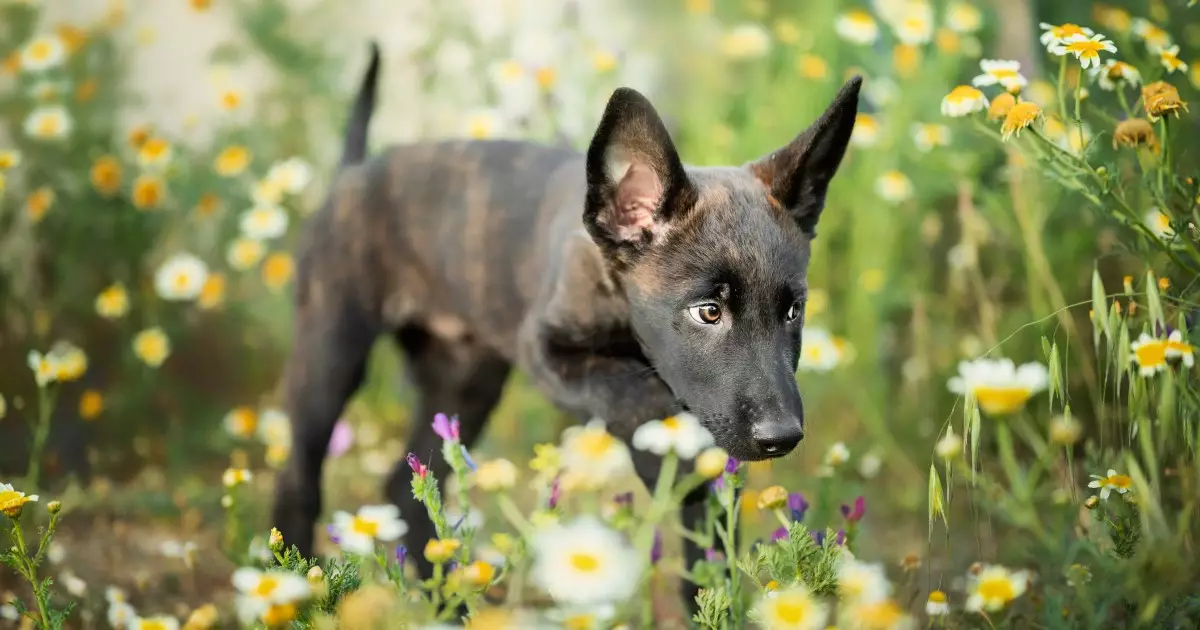The Dutch Shepherd, a gem among breeds, finds its roots in the tranquil pastures of the Netherlands. Initially bred for versatile herding duties, this highly adaptable dog has transcended its agricultural beginnings to become a cherished companion in contemporary households. While many might mistake them for their more popular cousins, the German Shepherds, Dutch Shepherds possess unique traits that set them apart as extraordinary animals in their own right. Their charming looks and dynamic personality are hard to overlook, making them worthy of a deeper exploration into their lineage and character.
The breed’s captivating brindle coloration adds an extra layer of intrigue to their appearance. In 1898, when the breed standard was first established, Dutch Shepherd puppies were acknowledged in a variety of coat colors. However, as the breed sought distinction from the German and Belgian Shepherds, the standards evolved, resulting in the delightful brindle pattern that we associate with these dogs today. This rich heritage highlights an essential aspect of the breed: adaptability and the ability to evolve in response to changing circumstances, a theme that resonates deeply in the nature of the Dutch Shepherd.
Temperament: Gentle Giants with a Heart
One of the most endearing aspects of Dutch Shepherd puppies is their temperament. Despite their robust stature—standing about 21 to 25 inches tall and weighing between 50 to 70 pounds—these dogs exude warmth and friendliness. They possess a unique blend of intelligence and cheerfulness, which makes them ideal companions for families, singles, and everyone in between. While some large breeds can exude a certain intimidating presence, Dutch Shepherds are renowned for their gentle disposition, making them approachable and loving companions.
Training a Dutch Shepherd puppy is often an enjoyable endeavor. Their innate intelligence and eagerness to please allow them to grasp commands with relative ease. This eagerness, coupled with their boundless energy, makes them excellent candidates for participation in various dog sports and activities, including agility competitions. However, it is essential for owners to engage them in socialization practices early on to develop well-rounded dogs that flourish in diverse environments. Exposure to different social settings, people, and other animals plays a vital role in shaping their disposition.
From Farming Workhorses to Versatile Helpers
Historically, the dutiful Dutch Shepherds were indispensable on farms, herding livestock while simultaneously safeguarding the family and property. Their ability to assist in pulling carts and acting as diligent watchdogs laid the foundation for their evolving role in human society. The rise of modern farming practices during the 1940s negatively impacted their popularity, leading them to the brink of extinction. Yet, the resilience of this breed shone through as dedicated enthusiasts revived its population post-World War II, demonstrating the significant bond formed between humans and Dutch Shepherds.
Today, these dogs have adapted to take on numerous roles, far exceeding their early herding functions. They now serve in various capacities such as search-and-rescue dogs, guide dogs for individuals with disabilities, law enforcement partners, and more. Their versatility showcases an admirable attribute: a willingness to serve and excel in various situations, emphasizing the depth of their character far beyond a simple label of “family dog.”
Health Considerations for a Happier Life
As with any breed, prospective owners should be aware of possible health challenges that can occur. Dutch Shepherd puppies are generally considered hearty, but they can be susceptible to certain conditions, including hip dysplasia and progressive retinal atrophy (PRA). Awareness and regular veterinary checks can aid pet parents in maintaining their furry friends’ health, ensuring they live fulfilling lives.
Physical activity is non-negotiable for Dutch Shepherds. Without daily exercise, they risk obesity and other health concerns. These energetic dogs thrive on open spaces and require ample opportunities to run, play, and mentally stimulate themselves. It is essential to avoid leaving them alone for extended periods, as this can foster anxiety and lead to destructive behaviors.
Long-haired and wire-haired varieties necessitate diligent grooming to maintain their coats, while short-haired dogs are less demanding in this respect. This grooming regimen is not just to maintain appearance—it serves as a bonding experience between dog and owner, strengthening their relationship over time.
Adopting a Dutch Shepherd puppy can be a rewarding experience that enriches life in numerous ways. With each wag of their tail and playful bark, these dogs offer unconditional love, companionship, and vitality, rewriting the narrative of what it means to welcome joy into the home.

